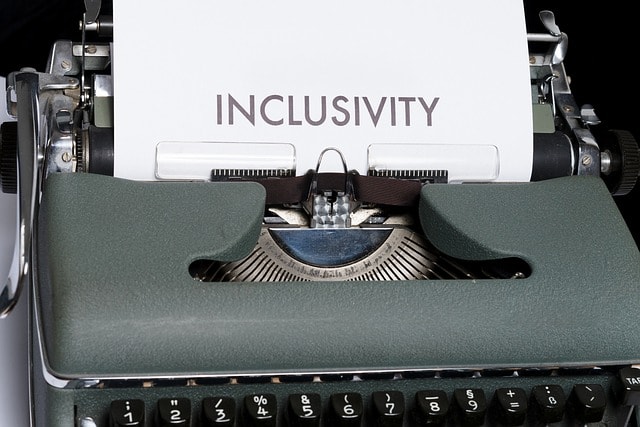
Experiencing discrimination in the workplace can be deeply unsettling and unjust. If you find yourself wondering, “Can I sue my employer for discrimination?” you’re not alone.
This article will guide you through understanding workplace discrimination, its types, and the steps to take if you believe you have been discriminated against. We will also explore what happens after filing a discrimination lawsuit and the potential damages you can recover.
What Is Workplace Discrimination?
Workplace discrimination occurs when an employer treats an employee or job applicant unfairly based on specific protected characteristics.
These characteristics include race, color, national origin, sex, sexual orientation, gender identity, age, disability, religion, genetic information, and more. Discrimination can manifest in various ways, such as hiring, firing, pay, job assignments, promotions, layoffs, training, benefits, and any other terms or conditions of employment.
In more severe cases, these situations can escalate to sexual harassment for a job applicant or someone under the disabilities act. Job applicants from different backgrounds may not know the employment laws and federal laws. Therefore, they remain victims without knowing their legal options.

Types of Workplace Discrimination
Whether an employment agency or a government agency is making the workplace poor, you should know the types of workplace discrimination. Understanding the different types of workplace discrimination can help you identify whether you have a valid claim. Here are some common forms of discrimination:
- Race and Color Discrimination: Unfair treatment based on race or skin color.
- National Origin Discrimination: Discrimination based on a person’s birthplace, ethnicity, or accent.
- Sex Discrimination: Unfair treatment because of a person’s sex, sexual orientation, or gender identity.
- Age Discrimination: Treating an employee or job applicant less favorably because of their age (40 or older).
- Disability Discrimination: Unfair treatment of a qualified individual with a disability.
- Religious Discrimination: Treating someone unfavorably because of their religious beliefs.
- Genetic Information Discrimination: Discrimination based on genetic information, including family medical history.
In other cases, your employer may be violating the ADA, which can lead to a lawsuit with or without a signed statement.
Examples of Workplace Discrimination
Discrimination can take many forms. Here are a few examples:
- Hiring and Firing: Refusing to hire or promote an individual because of their race, gender, or other protected characteristic.
- Pay Disparities: Paying someone less than their peers for the same work because of their sex, race, or another protected characteristic.
- Job Assignments: Assigning less favorable tasks or projects based on discriminatory reasons.
- Harassment: Making offensive remarks or engaging in unwelcome conduct based on a person’s protected characteristic.
- Retaliation: Punishing an employee for filing a discrimination complaint or participating in an investigation.
In some cases, it may also include a wrongful termination or discriminatory remarks that should result in legal action, ideally.
Laws Protecting Employees Against Discrimination

Understanding the Equal Pay Act
The Equal Pay Act mandates that men and women receive equal pay for equal work. If you believe you are being paid less than a colleague of the opposite sex for the same job, you may have a claim under this federal law.
Sexual Orientation and Gender Identity
Federal and state laws protect employees from discrimination based on sexual orientation and gender identity. Employers cannot treat employees unfairly or harass them based on these characteristics.
The Role of the Equal Employment Opportunity Commission
The EEOC is a federal agency responsible for enforcing federal anti-discrimination laws. They investigate discrimination complaints, mediate disputes, and may file lawsuits on behalf of employees.
The Genetic Information Nondiscrimination Act
The Genetic Information Nondiscrimination Act (GINA) prohibits discrimination based on genetic information. Employers cannot use genetic information to make employment decisions.

What Should I Do if I Believe I’ve Been Discriminated Against in the Workplace?
If you believe you have been a victim of workplace discrimination, it’s crucial to take the following steps:
- Document the Discrimination: Keep a detailed record of discriminatory acts, including dates, times, locations, and witnesses. Collect any relevant documents, such as emails or performance evaluations.
- Report the Discrimination: Inform your employer about the discrimination. Follow your company’s procedures for reporting discriminatory practices.
- File a Charge with the EEOC: If the issue is not resolved internally, you can file a charge of discrimination with the Equal Employment Opportunity Commission (EEOC) or the California Civil Rights Department (CRD).
Can I Sue My Employer for Discrimination?
Yes, you can sue your employer for discrimination. However, there are specific steps and legal requirements you must follow.
When Can I Sue My Employer for Discrimination?
You can sue your employer for discrimination after you have filed a charge of discrimination with the EEOC or CRD and received a Right to Sue notice. This notice is essential as it indicates that you have exhausted the administrative remedies and can now take your claim to court.
How Can I Sue My Employer for Discrimination?
- File a Charge: Submit a charge of discrimination to the EEOC or CRD. You must file within 180 days of the discriminatory act. This deadline may be extended to 300 days if state or local anti-discrimination laws apply.
- EEOC Investigation: The EEOC will investigate your complaint. This process may include interviews, witness statements, and a review of relevant documents.
- Receive a Right to Sue Notice: If the EEOC cannot resolve the issue, they will issue a Right to Sue notice. You have 90 days from receiving this notice to file a lawsuit in federal or state court.
- Consult an Attorney: Seek legal advice to understand your legal rights and options. An employment lawyer can help you navigate the complexities of filing a lawsuit and represent you in court.
What Happens After Filing a Discrimination Lawsuit?
Once you file a discrimination lawsuit, several things can happen:
- Discovery Phase: Both parties exchange information and gather evidence. This phase may include depositions, document requests, and interrogatories.
- Settlement Negotiations: Many cases are settled out of court. Settlement negotiations can occur at any stage of the lawsuit.
- Trial: If the case does not settle, it will go to trial. Both sides present their evidence and arguments, and a judge or jury will decide the outcome.
- Verdict and Compensation: If you win the case, you may be awarded various types of compensation.
What Types of Discrimination Does the EEOC Investigate?
The EEOC investigates a wide range of discriminatory practices, including:
- Race and Color Discrimination
- National Origin Discrimination
- Sex Discrimination
- Age Discrimination
- Disability Discrimination
- Religious Discrimination
- Genetic Information Discrimination

How Long Does It Take the EEOC to Investigate a Complaint?
The time it takes for the EEOC to investigate a complaint can vary. On average, an investigation can take between 6 months to 1 year. Complex cases may take longer. It’s important to be patient and provide all necessary information promptly to expedite the process.
What Damages and Compensation Can I Recover from This Lawsuit?
If you win a discrimination lawsuit, you may be entitled to various types of compensation, including:
- Back Pay: Compensation for lost wages and benefits.
- Front Pay: Compensation for future lost earnings.
- Compensatory Damages: Compensation for emotional distress, pain, and suffering.
- Punitive Damages: Damages intended to punish the employer for egregious conduct.
- Attorney’s Fees and Costs: Reimbursement for legal expenses.
- Reinstatement: Returning to your former job position if you were wrongfully terminated.

Conclusion
Discrimination in the workplace is illegal and unacceptable. If you believe you have been discriminated against, it’s crucial to understand your legal rights and take appropriate action. By documenting the discrimination, reporting it, and filing a charge with the EEOC or CRD, you can protect your rights and seek justice.
Consulting with an experienced employment lawyer can also provide valuable guidance and representation in your discrimination case.
Sue Employer for Discrimination with BLG
If you have further questions or need assistance, contact our California-based law firm. We, at Bourassa Law Group are here to help you handle the complexities of employment discrimination and fight for the justice you deserve.
Remember, you have the right to a fair and equitable work environment, and legal options are available to you if those rights are violated.





